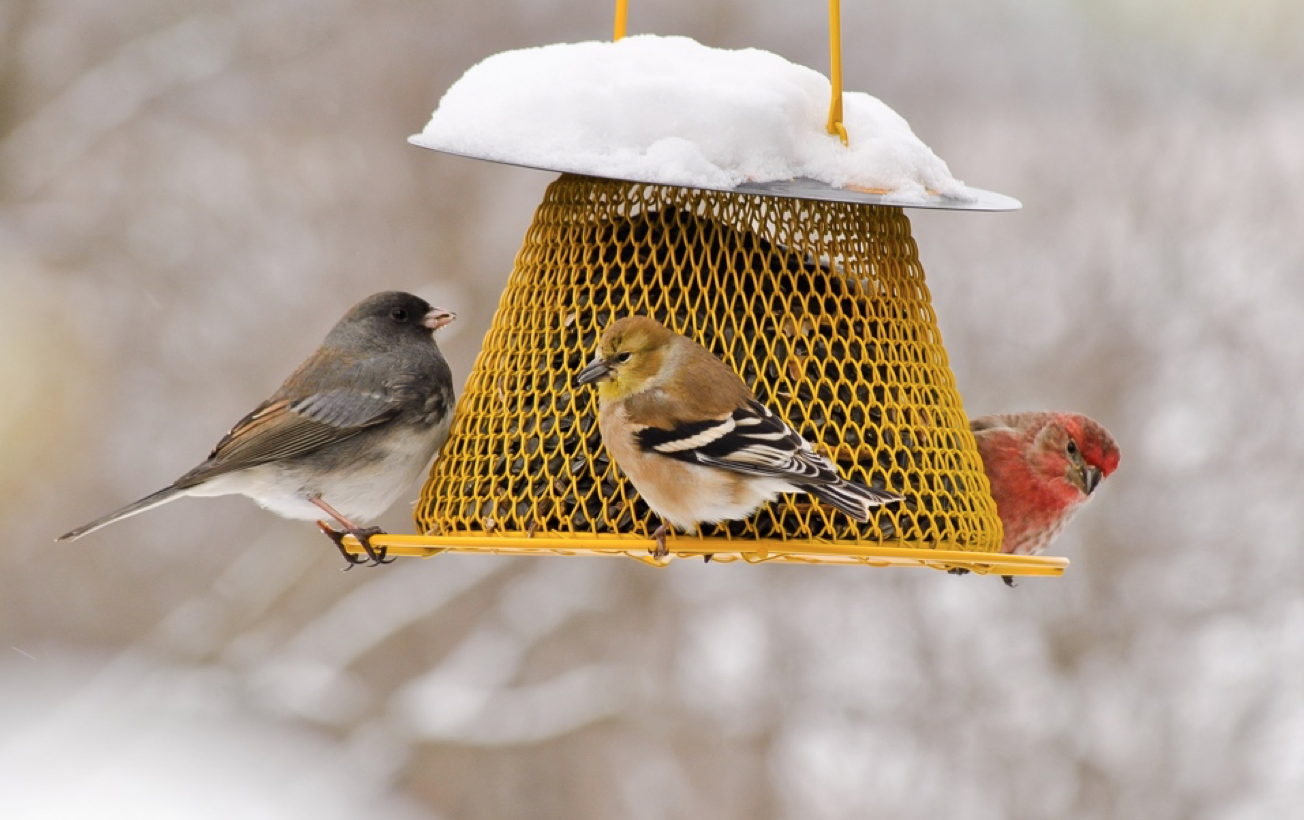
People who feed wild birds have an impact on conservation
More than 57 million households across the United States have bird feeders in their backyards, and Americans spend more than $4 billion on bird food each year. Researchers at Virginia Tech set out to investigate how the act of feeding birds may influence people, and found that these individuals have a significant impact on conservation.
Study co-author Ashley Dayer is an assistant professor in the Department of Fish and Wildlife Conservation in the College of Natural Resources and Environment at Virginia Tech.
“Given that so many people are so invested in attracting birds to their backyard, we were interested in what natural changes they observe at their feeders beyond simply more birds,” said Professor Dayer. “In particular, we wanted to know how they respond to their observations. For example, how do they feel if they see sick birds at their feeders, and what actions do they take to address these observations?”
In collaboration with researchers at the University of Georgia, the team analyzed how people respond to natural events at their feeders. The team used data that was collected in a survey of over 1,000 people participating in Project FeederWatch, a program that involves more than 25,000 individuals who observe and document backyard birds.
The analysis revealed that, as a result of feeding, most people noticed natural changes in their backyards such an increase in the number of birds at their feeders. The bird watchers also reported the presence of cats, hawks, or sick birds near the feeders.
“More and more, we see that humans are interacting less with nature and that more of our wildlife are being restricted to areas where there are humans around. Looking at how humans react to and manage wildlife in their own backyards is very important for the future of wildlife conservation and for understanding human well-being as the opportunities for people to interact with wildlife become more restricted to backyard settings,” said Professor Dana Hawley.
Study co-author David Bonter is the director of Citizen Science at the Cornell Lab of Ornithology, which is the lab that manages Project FeederWatch.
“From my 17 years working with people who feed birds as part of citizen science projects, I’ve heard a great deal about their impactful observations at their feeders,” said Bonter. “This study provides important information about the breadth and pattern of these experiences through responses of over 1,000 participants. The findings will help us at Project Feederwatch improve how we work with bird watchers toward our shared goal of bird conservation.”
The researchers were surprised to find that people prioritized natural factors, such as cold weather, more than time and money, when deciding how much to feed birds.
“Feeding wild birds is a deceptively commonplace activity. Yet, it is one of the most intimate, private, and potentially profound forms of human interaction with nature,” said Professor Darryl Jones, who was not involved in the study. “This perceptive study uncovers some of the remarkable depth associated with bird feeding and discerns that people who feed birds are alert to a wide range of additional natural phenomena.”
The research is published in the journal People and Nature.
—
By Chrissy Sexton, Earth.com Staff Writer
Image Credit: Virginia Tech













